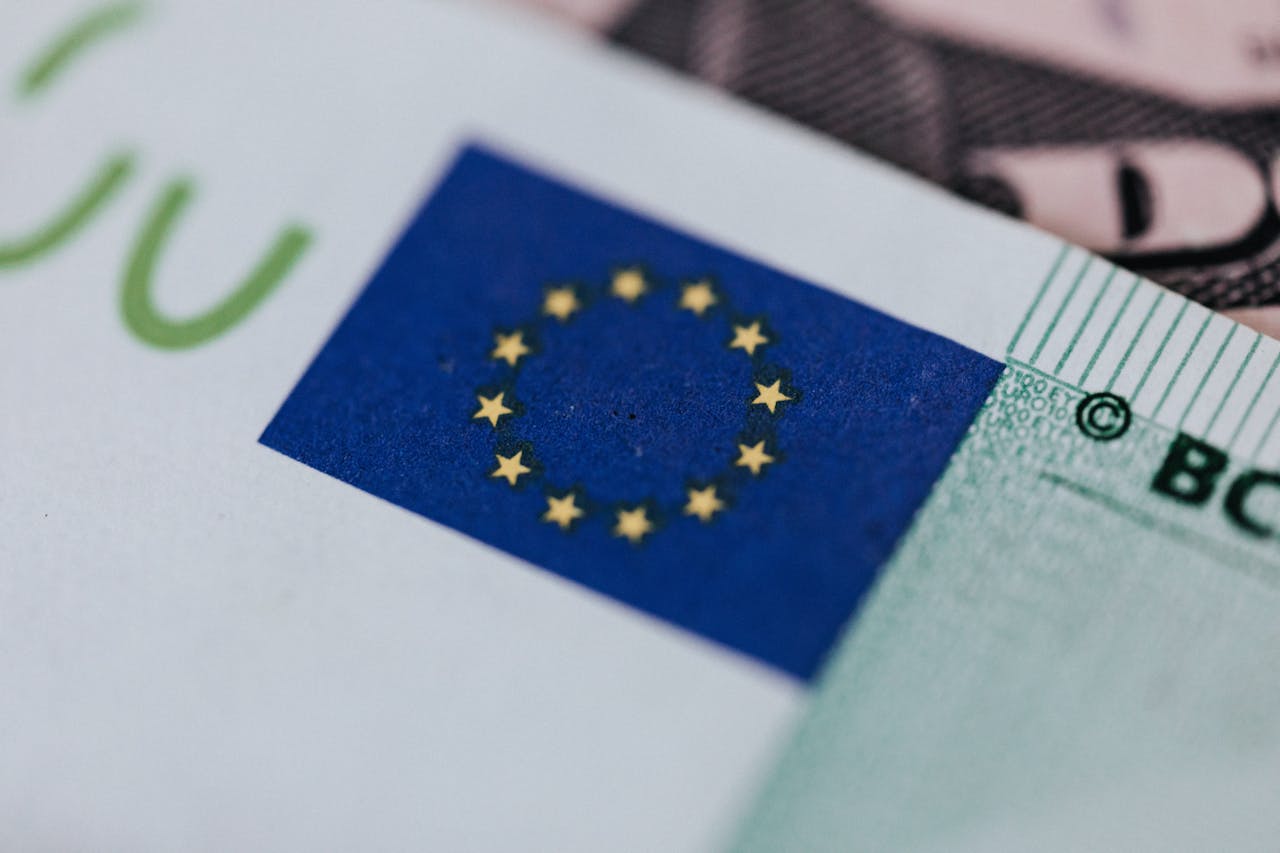Fintech
EUDI Wallet: The New Frontier of European Digital Identity for Businesses
The EUDI Wallet, enabled by the eIDAS2 regulation, streamlines digital identity management across the EU. It enhances onboarding, KYC, digital payments, and Open Finance integration, offering businesses efficiency, security, and cost savings. As a unified, certified ecosystem, it fosters seamless cross-border transactions and competitive advantage in a rapidly evolving digital landscape.

Digital transformation is redefining the dynamics of every sector; in this evolutionary scenario, digital identity and the secure management of personal data are taking on an increasingly important role. It is essential for companies to keep up with the new opportunities offered by electronic identification systems and related services.
The new European Digital Identity Wallet, also known as EUDI Wallet, provided for by the eIDAS2 regulation, which in the coming years will guarantee uniformity of standards, security and interoperability throughout the European Union.
In this article, we will explore how companies can use this tool to increase efficiency and competitiveness, focusing in particular on the benefits related to digital payments, Open Finance and the optimization of onboarding and KYC processes.
What is EUDI Wallet?
The EUDI Wallet, despite what one might easily be led to believe, is not just a simple “container” of credentials or digital attributes. Thanks to the evolution of European regulations and the integration with digital payment tools and Open Finance services, it represents a strategic lever to simplify, accelerate and protect numerous business processes.
The evolution of digital identity in the European Economic Area
The push towards the adoption of a common digital identity in Europe started with the eIDAS Regulation (EU Regulation No. 910/2014) of 2014, which laid the foundations for mutual recognition of electronic identification systems between Member States. This first phase resulted in a progressive diffusion of national digital identities (such as SPID in Italy), with the aim of allowing individuals and businesses to access public and private services across borders, quickly and securely.
However, the current context requires more advanced tools, capable of integrating different types of information (personal data, professional certificates, invoicing data, payment credentials) within a single ecosystem. This is where the new eIDAS2 regulation comes into play (EU Regulation 2024/1183 of 11 April 2024), which introduces the concept of EUDI Wallet, a sort of unified digital wallet at European level, with a high degree of reliability.
The new wallet allows users (citizens or businesses) to have full control over their data , whether they are attributes that qualify their identity or credentials for authenticated access to various types of services.
How the EUDI Wallet Works
The EUDI Wallet is designed to be an application, installable on smartphones or other devices, within which citizens and businesses will be able to store and manage digital credentials recognized throughout the EU. This means that, with a single tool, a user – be it a private citizen or a representative of a company – will be able to demonstrate their identity or the validity of certain certifications , sign documents electronically with legal value and even make digital payments in a secure and traceable manner.
The operation is based on an ecosystem of qualified Trust Service Providers , Identity Providers and other regulated figures that guarantee the validity of the credentials loaded into the Wallet. Once released or verified, these credentials remain in the holder’s wallet, ready to be used in various situations: from signing contracts to requesting banking services, up to issuing or receiving electronic invoices.
Opportunities for companies
For a company, the introduction of the EUDI Wallet can revolutionize many areas. First of all, it simplifies the onboarding processes of new customers or suppliers. If a business partner has verified credentials (for example, a certificate of enrollment in a professional register, a validated identity document, a qualified electronic signature), it will be enough to request the sharing of these data through the digital wallet to quickly conclude the procedure.
Secondly, companies that use services ofe-invoicing and payment will be able to integrate more seamlessly with the EUDI Wallet, taking advantage of its authentication and electronic signature features to generate documents valid throughout the European Union. This will significantly reduce bureaucracy, cutting verification times and management costs.
Other opportunities emerge in the field of credit scoring : thanks to the integration of financial information, it will be easier to collect reliable data and evaluate it with greater precision. This will facilitate faster and more transparent decision-making processes, with a consequent advantage for both credit institutions and companies requesting evaluations or financing.
Digital Payments and Open Finance: a Natural Synergy with EUDI Wallet
The EUDI Wallet fits perfectly into the evolutionary context of theOpen Finance(evolution of theOpen Banking concept), a paradigm that promotes a secure and regulated sharing of financial data between different authorized platforms , fostering the development of innovative, personalized and real-time services. In this scenario, the EUDI Wallet takes on the strategic role of a digital “hub”, integrating the verified digital identity with multiple payment instruments such as current accounts, credit cards and fintech platforms.
Businesses will be able to manage payments and collections more quickly and efficiently, benefiting from an immediate verification of identities and the validity of shared financial data. This integration also represents a significant potential for advanced transaction automation , predictive analysis and fraud prevention , bringing tangible benefits to the daily financial management of businesses.
A practical example clearly illustrates this synergy: a company operating in B2B trade in various European countries will be able to greatly simplify the process ofcollection of payments. Thanks to the EUDI Wallet, customers will be able to authenticate their digital identity with a simple click, authorize payments –in accordance with SCA provided for by PSD2-, through verified current accounts, credit cards or other integrated digital tools and, finally, if necessary, confirm commercial transactions with a qualified electronic signature, all in the same purchase funnel.
In addition, the traceability guaranteed by the wallet will allow companies to easily monitor transactions, improving financial management and reducing the risk of fraud. This process will drastically reduce the time and costs associated with verification, eliminating unnecessary steps and promoting smoother and safer daily management of financial activities.
EUDI Wallet and digital onboarding
The EUDI Wallet significantly simplifies onboarding processes and KYC , allowing companies to quickly identify customers and suppliers thanks to the immediate availability of certified digital credentials, personal data and professional information already validated. This digitalized process significantly reduces the operating costs associated with document management and manual checks, also minimizing the risk of human errors and fraud.
This innovation represents a significant competitive advantage, especially in highly regulated sectors such as fintech , financial services , banking and insurance , where precision, speed and efficiency in verification procedures are essential to improve customer satisfaction and accelerate the time-to-market of the services offered.
Final considerations
The entry into force of the EUDI Wallet, provided for by the eIDAS2 regulation, marks a decisive step towards the creation of a truly integrated European digital single market. The opportunities offered by this tool are multiple and highly strategic for financial managers, CEOs and corporate treasurers: from speeding up onboarding and KYC procedures, to simplifying payments, to the possibility of creating innovative services based on the integrated use of certified data.
Companies that will be able to seize the opportunities offered by the EUDI Wallet in a timely manner will be able to optimize their internal processes, strengthening the trust of their business partners and customers. This new ecosystem will allow them to fully benefit from the digital transformation, improving their competitiveness and positioning on the European market thanks to a harmonized, secure and efficient system.
__
(Featured image by Kaboompics.com via Pexels)
DISCLAIMER: This article was written by a third party contributor and does not reflect the opinion of Born2Invest, its management, staff or its associates. Please review our disclaimer for more information.
This article may include forward-looking statements. These forward-looking statements generally are identified by the words “believe,” “project,” “estimate,” “become,” “plan,” “will,” and similar expressions. These forward-looking statements involve known and unknown risks as well as uncertainties, including those discussed in the following cautionary statements and elsewhere in this article and on this site. Although the Company may believe that its expectations are based on reasonable assumptions, the actual results that the Company may achieve may differ materially from any forward-looking statements, which reflect the opinions of the management of the Company only as of the date hereof. Additionally, please make sure to read these important disclosures.
First published in TeamSystem. A third-party contributor translated and adapted the article from the original. In case of discrepancy, the original will prevail.
Although we made reasonable efforts to provide accurate translations, some parts may be incorrect. Born2Invest assumes no responsibility for errors, omissions or ambiguities in the translations provided on this website. Any person or entity relying on translated content does so at their own risk. Born2Invest is not responsible for losses caused by such reliance on the accuracy or reliability of translated information. If you wish to report an error or inaccuracy in the translation, we encourage you to contact us

-

 Crypto2 weeks ago
Crypto2 weeks agoBitcoin Wavers Below $70K as Crypto Market Struggles for Momentum
-

 Biotech4 days ago
Biotech4 days agoInterministerial Commission on Drug Prices Approves New Drugs and Expanded Treatment Funding
-

 Africa2 weeks ago
Africa2 weeks agoMorocco’s Tax Reforms Show Tangible Results
-

 Biotech7 days ago
Biotech7 days agoUniversal Nanoparticle Platform Enables Multi-Isotope Cancer Diagnosis and Therapy

























